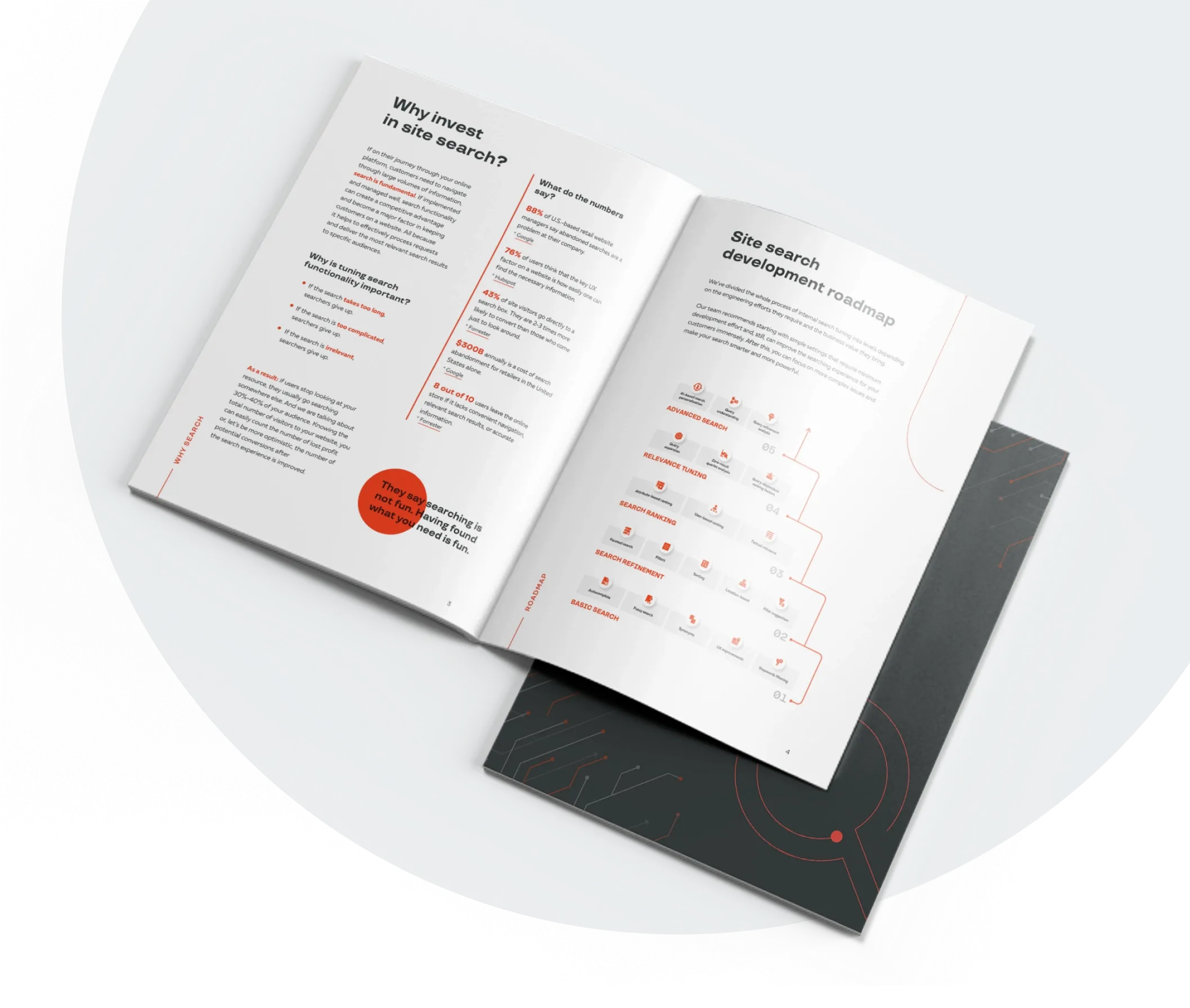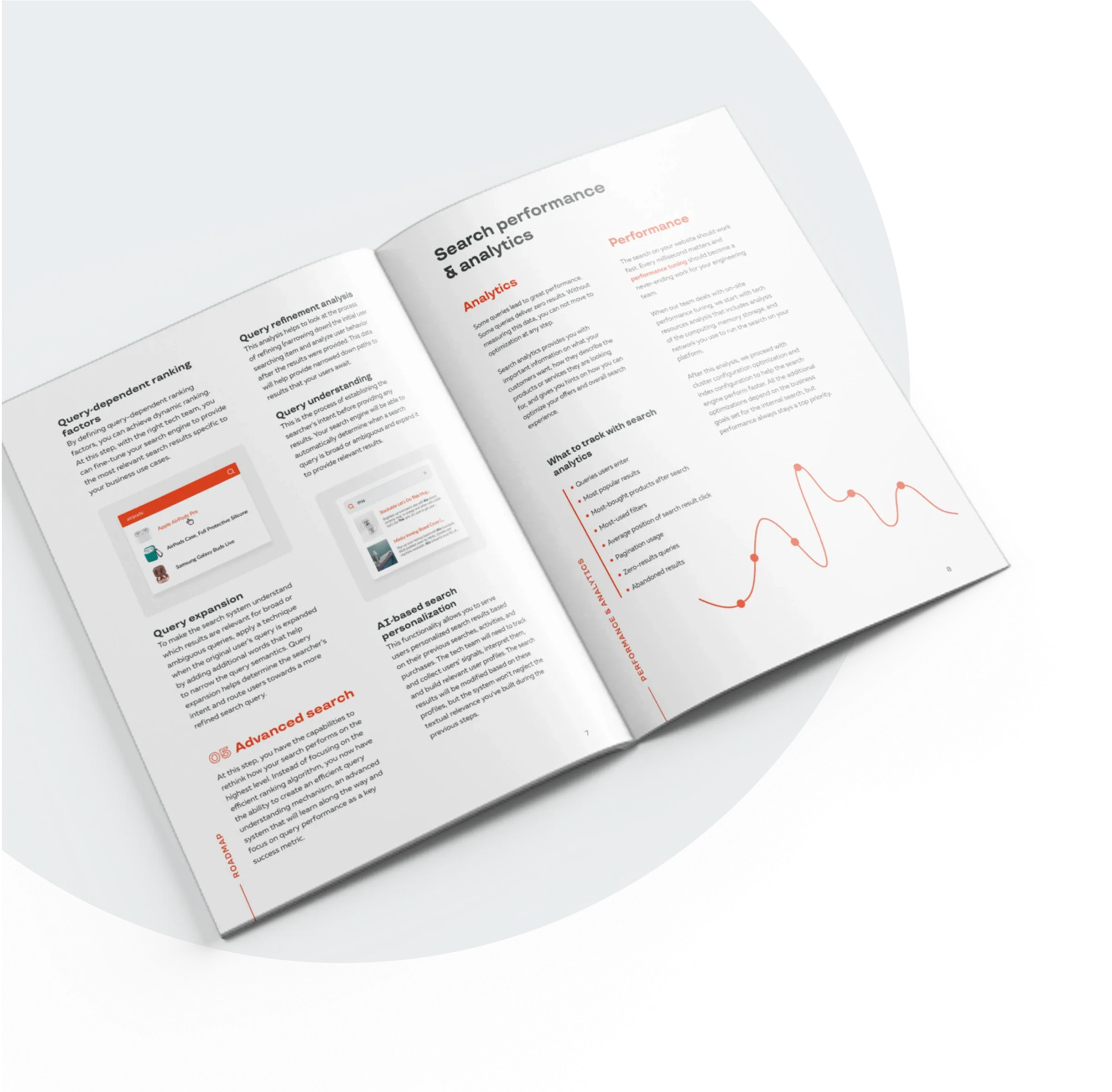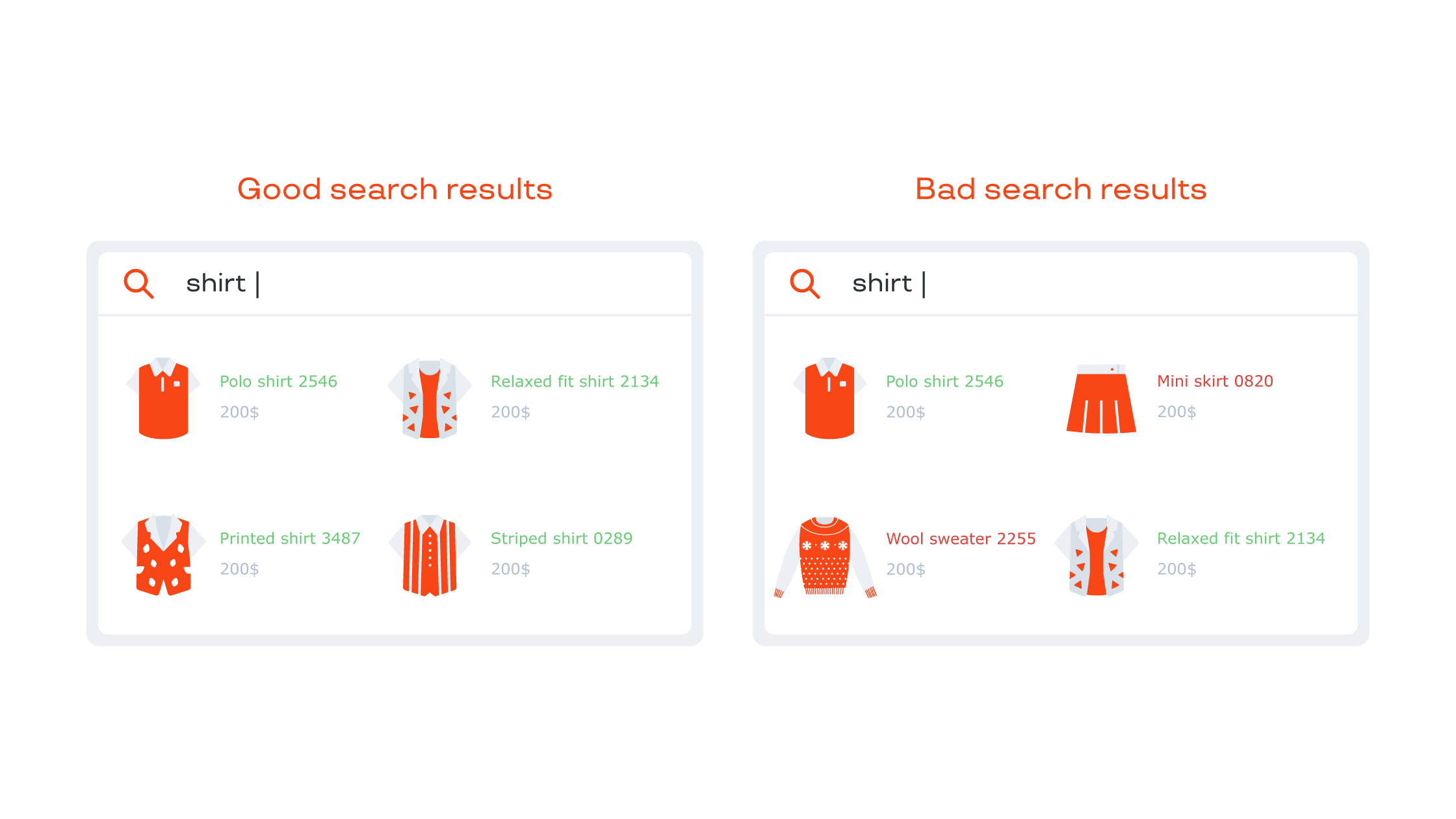Ebook on internal search development
Where should you start improving the search experience, and what will bring the most value at different steps? We’ve created an ebook with a detailed roadmap to the advanced search experience.


Building an in-house search for E-commerce
An E-commerce store without an in-house search is like a grocery store without labels. You'd be left wandering down the aisles of the store with the hope of finding what you are "searching" for by chance. For the store owner, this is a bad practice as some customers might get jaded before finding anything, and the outcome of this means no or little business. This case can also be applicable to an E-commerce store if we replace the offline attendants with the online visitors who use the search widget.
The efficiency of the internal search has surpassed the need for navigation on the website by users and has also become a great tool for the store owners. It helps to drive sales and increase conversions.
The tech surrounding the functionality of the search widget is beyond the generic search present on most websites as this only gives results based exclusively on the search keyword. For example, if the word "shirt" is typed into the search bar, the search results are not expected to go beyond the word "shirt", and we could say this type of search is based strictly on the search keyword and not influenced by the user experience and the other factors.

Currently, there are two main options that we will describe at a high level in this post. For most CTOs this sounds like "build vs buy" and in many cases. The decision depends not only on what is better but what kind of company you are in: are you a tech-first company or a business-first company.
Building an in-house search for E-commerce
Building an E-commerce search yourself involves the configuration of a search engine, like Elastic site search, ManticoreSearch, or Solr. There are a handful of search features to consider and scope when building an E-commerce search, for example, search types, autosuggest, typo tolerance, and many other built-in features.
These solutions provide a very flexible search platform. Setting it up can take a month at most, and this relies upon certain factors, for example, the number of products in the catalog. The need to structure and optimize data for search cannot be left out as it is crucial to the solution functionality. The data should be prepared for the search integration. This might include:
- Normalizing attribute values.
- Configuration of basic and advanced features that would improve user experience.
- Structuring and optimization of data then the ranking of search results based on their relevancy.
Pros and cons of using self-hosted search
Adopting 3rd-party vendor
SaaS companies specialize in specific niches and always optimize their products to get excellent results based on the niche the product specializes in. They have focused on creating an efficient site search that possesses features like text auto-complete, spell checker, natural language processing (NLP), advanced stemming, and more.
Pros and cons of using SaaS
Where to start?
If you are wondering where you should start while doing your research on how to improve search on your site there are a few questions to answer first. Do you know what problem you are solving or what goal you pursue? If so – great. If not, you might want to start by analyzing a few basic metrics to understand how your search performs and how it affects sales.
Conversion Rate
Conversion rate is arguably the most important metric, it has a significant impact on your site's profitability. When your website search functions as well as it should, it becomes a salesman that leads users to their desired destination pages. This way, search helps to engage and convert potential customers.
Bounce Rate
The bounce rate is the rate at which new visitors open your site and immediately click away without interacting with it. The lower the bounce rate, the better. A high bounce rate can mean several things and common problems include poor design, low usability, or high search time. This metric is a great indicator for improvement.
Search Page Speed
Page Speed is the amount of time that it takes for a web page to load. A page's loading speed is determined by several different factors. This issue can be solved by site search providers or the in-house development team.
How Deep Search Users Go
A lot of users get jaded after searching the first and second pages, so it's up to the search provider to optimize the search tool to bring results relevant to the keywords up on the search page. This data is very important to analyze while working on improving internal search.
Relevancy Ranking
The task of the search engine is to ensure that the best-matched results are shown up first. Search irrelevance turns into poor user experience and this affects sales directly. Constantly improving your data tagging, assessing site search performance, and tweaking your relevance algorithms will be key to search relevancy.
A/B Testing
This is an important tool that involves a performance comparison between two versions of software (a search results page, in this case). A/B testing can be used to determine which search changes to launch after monitoring certain metrics like the ones listed above. A/B testing approach will have significant implications for what kinds of changes you need to create, test, and then launch.
Team Cooperation
The last but not least significant thing to start with is building an in-house team for E-commerce development or hiring an outsourcing partner. Experienced engineers, data analysts, and marketers are required to work in an across-functional team. Look for people with an expertise-based approach that have experience with internal search integration and optimization specifically.
To sum up, the pros and cons of both options have to be considered in terms of how it fits the E-commerce store and the budget, among other factors. Choosing how to develop your E-commerce search, shouldn't be a decision to jump into. Start with defining what goals you want to achieve by working on search and evaluating all options carefully.
Wise Engineering experts provide consulting services on custom E-commerce development and will gladly discuss your tech challenges and business goals via call or email.